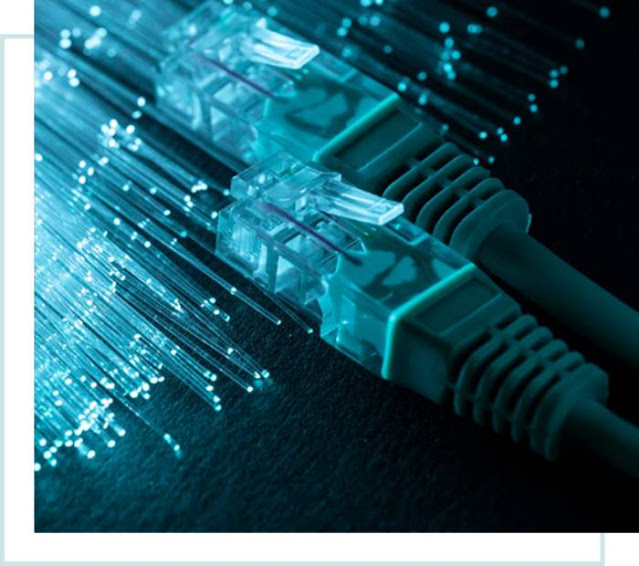Benefits of Fiber Optic Connection
Fiber-optic connections have revolutionized the way we communicate and access information. They are a type of high-speed internet connection that uses thin aspects of glass or plastic to transmit data using light signals. In comparison to traditional copper wires, fiber-optic connections offer several significant benefits.
In This Article, We Will Explore These Benefits In Detail.
Speed: Fiber-optic connections provide incredibly
fast internet speeds. They can spread data at the speed of light, which is significantly
faster than copper wires. Whether you are streaming movies, playing online
games, or downloading large files, fiber-optic connections allow for seamless
and uninterrupted internet usage.
Bandwidth: Fiber-optic connections offer a much
higher bandwidth capacity compared to other types of internet connections. This
means that multiple users can simultaneously access the internet without
experiencing any slowdowns or buffering issues. Whether you have a large
household or a busy office, fiber-optic connections can handle the demand for
high-bandwidth activities.
Reliability: Fiber-optic connections are highly
reliable and less prone to interference. Unlike copper wires, fiber-optic
cables are not affected by electromagnetic interference from power lines or
radio waves. This means that your internet connection will remain stable even
during adverse weather conditions or nearby electrical disturbances.
Distance: Fiber-optic connections can transmit data
over longer distances without experiencing any signal degradation. Copper
wires, on the other hand, tend to lose signal strength over longer distances.
This makes fiber-optic connections ideal for connecting remote or rural areas
where traditional internet infrastructure may be limited.
Security: Fiber-optic connections offer enhanced
security compared to other types of internet connections. The data transmitted
through fiber-optic cables is much harder to tap or intercept, making it more
secure against cyber threats. This is particularly important for businesses or
individuals who handle delicate data and want to ensure its protection.
Scalability: Fiber-optic connections are highly
scalable, which means they can easily accommodate increasing bandwidth needs.
As technology continues to development and our reliance on the internet grows,
fiber-optic connections provide the flexibility to upgrade and expand the
network without major infrastructure changes.
Future-proof: Fiber-optic connections are considered
a future-proof technology. As the call for faster internet speeds and higher
bandwidths continues to increase, fiber-optic connections provide the
foundation for meeting these requirements. Investing in fiber-optic
infrastructure ensures that you are well-prepared for future advancements in
technology.
Lower latency: Expectancy refers to the delay between
sending and receiving data. Fiber-optic connections have much lower latency
compared to other types of internet connections. This is especially important
for actions that require real-time email, such as online gaming or video
conferencing, where even milliseconds of delay can make a difference.
Symmetrical speeds: Fiber-optic connections offer
symmetrical speeds, meaning the upload and download speeds are equal. This is a
significant advantage for businesses or individuals who frequently upload large
files or rely on cloud-based applications.
Conclusion
Fiber-optic connections offer numerous benefits that make
them superior to traditional copper wire connections. They provide incredibly
fast speeds, high bandwidth capacity, reliability, enhanced security,
scalability, and low latency. Additionally, fiber-optic connections are
future-proof and offer symmetrical speeds. As technology stays to advance,
fiber-optic connections will play a crucial role in supporting our increasing
demand for high-speed internet access. So, whether you are a business owner, a
gamer, or an avid internet user, investing in a fiber-optic connection can
greatly enhance your internet experience.




Comments
Post a Comment